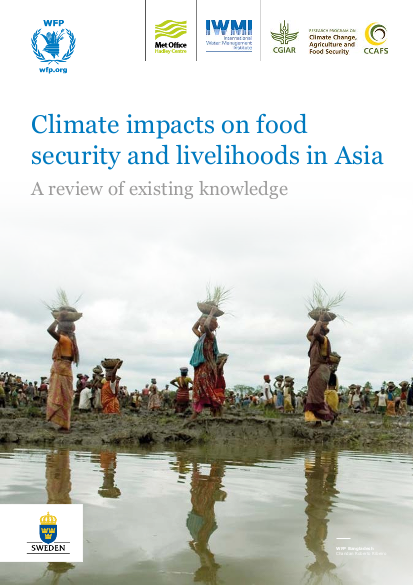
The WFP Regional Bureau for Asia & the Pacific together with the leading climate research institutes, the UK Met Office Hadley Centre and IWMI/CCAFS undertook a study on climate change and food security in the region. This was supported by the global C-ADAPT initiative. The outcome is a reference paper for policy and decision- makers based on existing knowledge about how climate change interacts with food security and nutrition in the Asia region.
The publication:
- Summarizes the latest available research on climate science and food security.
- Makes clear connections between climate change and food insecurity, with specific examples from the Asia region.
- Puts climate change in a context of other drivers of risk in the region, including population growth, urbanization, deforestation and loss & damage. This is a requirement in order to understand how climate change will exacerbate existing challenges and what capacities are available to address them.
- Provides a clearer picture of climate change projections and what they mean for the Asia region specifically.
- Focuses on access, utilization and stability aspects of food security in relation to climate change impacts, as opposed to only availability (production). For this region, it stresses that adapting food production will be important, in particular in terms of building the resilience of poor rural people’s livelihoods, but that the access, utilization and stability aspects of food security are perhaps even more important and are much less understood.